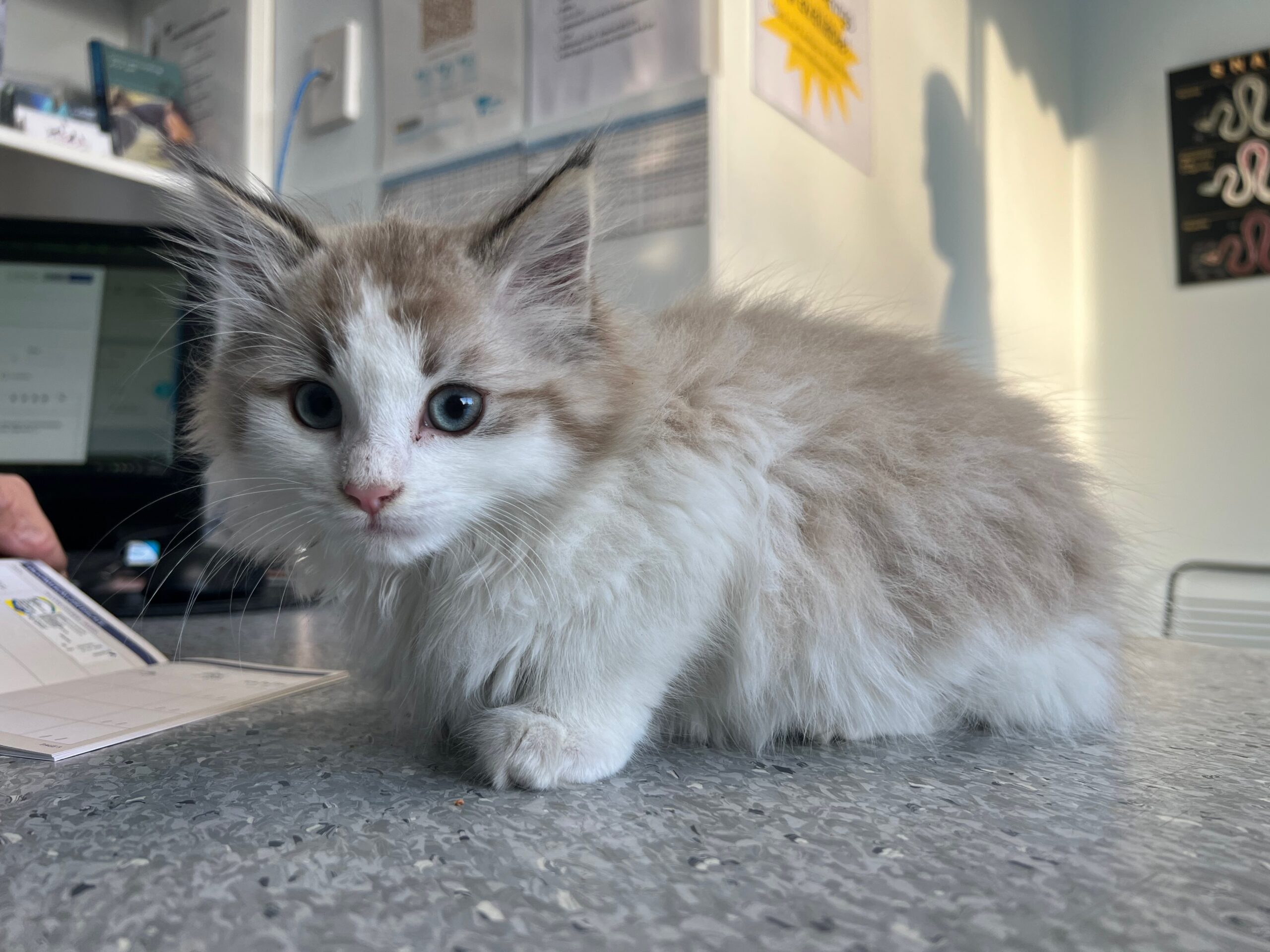Kitten Care

Caring for your Kitten
Bringing home a new kitten is an exciting time for everyone in the household. This little bundle of fluff will entertain you as it plays around your house and garden. Even the most simple of items can entertain your kitten for hours on end. Items such as paper bags, ping pong balls, boxes and screwed up newspapers are simple examples. When you first bring your kitten home, it will take them a time to settle in. It is a good idea to have a place ready for them with a bed, food bowls and a litter tray. Kittens are quick learners and generally know instinctively how to use their kitty litter, though occasionally they may need encouragement! They should be kept inside until at least a week after they have had their last kitten vaccination. If you would like your kitten to have time outdoors, then let them out a little at a time, initially under supervision. It is a good idea to let your kitten or cat out before mealtime, so they have a good incentive to come them inside again! Kittens should always be supervised outdoors until they are adults. All cats should be kept in at night – both for the sake of the local wildlife and for their own safety. Cats are much more likely to roam at night and therefore are much more prone to fighting and having accidents at this time.
Provide your kitten with things to do – even a peg, a sock or a scrunched up piece of paper can be a toy! Scratching is natural behavior for cats, but they need to be able to express this in an acceptable way (to protect your furniture!) – scratching posts or something similar provides their claws with good exercise.
Kitten Vaccinations
Which are the most important vaccinations to have? We suggest all cats be vaccinated against feline herpes virus, feline calicivirus and feline panleukopaenia. This is often referred to as a F3 vaccination. For outdoor cats, we recommend vaccination against feline immunodeficiency virus (FIV). The primary F3 kitten vaccinations are gives at 6-8 weeks, 12- 14 weeks and 16 -18 weeks. A yearly booster is required to maintain immunity. At present WE are recommending feline aids vaccinations in kittens – as this is a preventable disease and 2% of cats eventually contract the disease.
How often should booster vaccinations be given? Guidelines for booster vaccinations are constantly being debated around the world. Vaccines currently used in Australia are labelled by the manufacturer to be given every 12 months. We support this and recommend that after the initial series of kitten vaccinations that cats be vaccinated every 12 months.
Kitten worming
We recommend treating for roundworm, hookworm and tape worm. Adults cats should be treated every 3 months. We will advise you during the initial consultation the ideal product to use. There are tablets , pastes and even “spot on” deworming products’ that are so easy to use for a cat that is difficult to give tablets to.
Kitten diet
Kitten require a scientifically formulate kitten diet to meet their unique needs for their rapid growth. Much of the bone growth occurs in the first 6 months. Meat alone is not a balanced diet!. We stock appropriate balanced kitten foods, at the clinic. Dr Phil recommends the following brands of kitten food Iams, Eukaneauba, Royal Canin and Hills Science diet. They are availible at Pet Shops, veterinarians and certain large stores like Cosco.
Kitten desexing
We recommend desexing at about 5 months old. We will have discussed the reasons during your initial veterinary visits.
Fleas treatments for cats.
Fleas are common and relatively easy to treat. We stock a wide range of feline flea products. Many flea products are a spot on and will deworm your cat at the same time.
Microchipping
Microchips can be inserted under the skin on your cats neck. These chips are a permanent identifi cation tool for your cat. All vet clinics, council rangers and lost dog homes have scanners which can detect microchips and hence locate a cats owner within a few minutes. There is an initial insertion fee which also includes subscription to Central Animal Records for the life of your cat. Microchipping is compulsory for all pets from 3 months old when registration is due. It can be done in a routine consultation.
